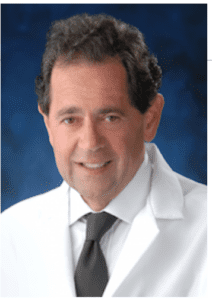 Paolo Casali, M.D. has spent almost 5 decades in the areas if immunology, microbiology and molecular genetics. Dr. Casali studies how certain genes are turned on or off in the immune system and looks at how these changes affect the body’s ability to make antibodies; proteins that help fight infections. The Casali lab studies how B cells (a type of immune cell) mature and produce antibodies, which help fight infections. They look at two types of responses: one that needs help from T cells (CD40) and one that doesn’t (toll-like receptor). They focus on processes like class-switch recombination (CSR) and somatic hypermutation (SHM), which help B cells make different types of antibodies, and how B cells become memory cells or plasma cells.
Paolo Casali, M.D. has spent almost 5 decades in the areas if immunology, microbiology and molecular genetics. Dr. Casali studies how certain genes are turned on or off in the immune system and looks at how these changes affect the body’s ability to make antibodies; proteins that help fight infections. The Casali lab studies how B cells (a type of immune cell) mature and produce antibodies, which help fight infections. They look at two types of responses: one that needs help from T cells (CD40) and one that doesn’t (toll-like receptor). They focus on processes like class-switch recombination (CSR) and somatic hypermutation (SHM), which help B cells make different types of antibodies, and how B cells become memory cells or plasma cells.
In recent news, scientists led by Dr. Casali created a humanized mouse model with a fully developed and functional human immune system; including lymph nodes, germinal centers, thymus human epithelial cells, human T and B lymphocytes, memory B lymphocytes, and plasma cells. These mice, called TruHuX (THX), provide a platform to continue research to develop human vaccines, efficacy, therapeutics, and autoimmune responses. To read more about this multi-year project, review the Casali Lab’s work published in Natural Immunology August 2024.
Dr. Casali is currently at UT Health San Antonio in the Department of Medicine and the Department of Microbiology, Immunology & Molecular Genetics. He is a University of Texas Ashbel Smith Professor and Distinguished Research Professor. In addition, he served at Weill Cornell Medical College in New York as a professor of immunology and the director of the division of molecular immunology as well as the time as the founding director of the Institute for Immunology at UC Irvine.
Paolo Casali received his M.D. at the University of Milan, School of Medicine and Surgery and received a Specialty Diploma and Board Certification from the University of Milan for Allergy & Clinical Immunology and Microbiology & Virology.
